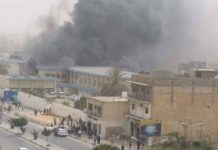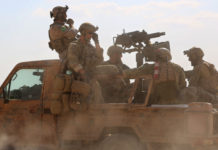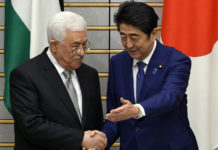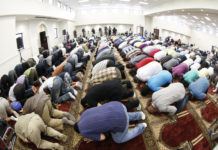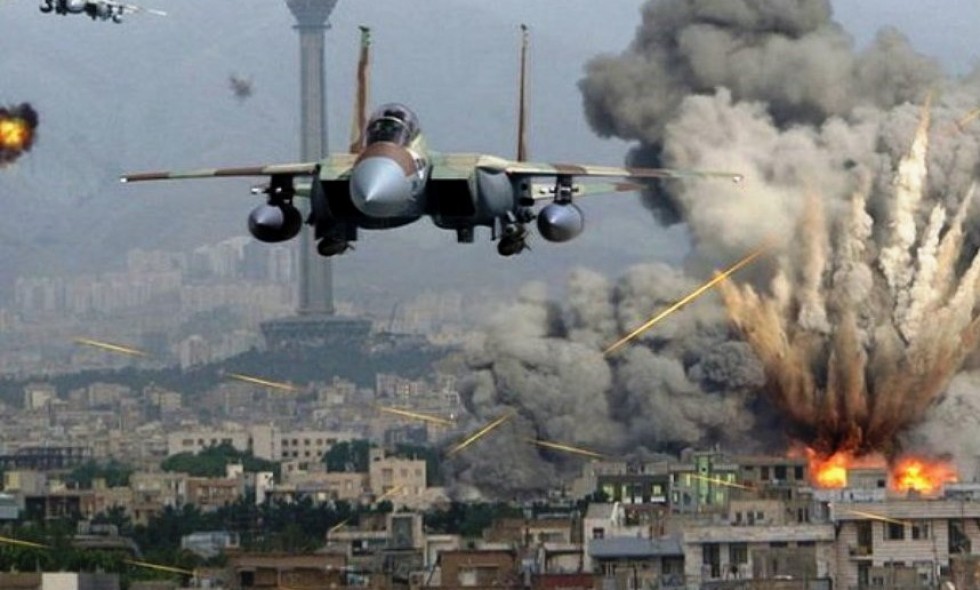Last week saw another flurry of American cruise missiles launched at Syrian government installations, with a few fig leaf missiles from Britain and France thrown in for multilateral appearances. The stated intent of the missile strikes was to punish the Assad regime for another use of chemical weapons against rebel-held civilian areas, and to deter the regime from more of the same in the future.
In this case, as with so much in Syria, there were no good options. The United States, Britain and France claimed to be acting to defend international law, but in the process they breached international law themselves. While defending the 1925 protocol against the use of chemical weapons remains laudable, they launched the strikes on Syria without approval from the UN Security Council – which makes the attack on the Syrian regime illegal.
They also launched the strikes before any inspectors could assess the extent of chemical weapons use in Douma last week. Part of the blame for that goes to Russia, which vetoed a UN Security Council resolution to send inspectors to the site of the chemical weapons attack. The Russians likely did so in order to avoid A UN fact finding team determining that the Assad regime was responsible for the attack, especially since such a finding would lead to follow up debate in the Security Council with a high likelihood of building a mandate to act against Assad.
Nonetheless, the Russians and the Assad regime did invite inspectors from the Organization for the Prohibition of Chemical Weapons (OPCW) to assess the gas attack site in Douma. This alternative OPCW investigation would have simply confirmed the attack happened, without attributing responsibility. The time elapsed since the attack in Douma and lingering questions about culpability (despite the extremely high likelihood that the Assad regime, as in most past gas attacks, was responsible) would have then made retaliation against Assad much more politically difficult for the West.
In essence, international law gets breached either way – either the Assad regime uses chemical weapons (as well as barrel bombs, other bombs, tanks and so forth) against civilians without repercussions, or those seeking to punish and deter him from such break international law by acting in spite of Russian Security Council vetoes on the issue.
The roughly 100 cruise missiles launched against Assad also make the breach of international law hardly worth it – the damage to the Syrian regime does not appear extensive (whatever the propaganda coming out of Washington, London and Paris), and Assad gets to burnish his Arab nationalist credentials for “resisting imperialism.” If one is going to break the law for the right reasons, one might as well make the breach count for something.
The Western public also has reason to doubt the honesty of their leaders on the issue. Was it not former US President Barack Obama, Secretary of State John Kerry and various inspectors who assured us all that Assad had complied and disposed of all his chemical weapons after the attacks in 2013? Either American leaders and others at the time were lying or they lacked good intelligence on the issue. This all brings back some uncomfortable memories from 2003 in a kind of reverse image fashion. For Assad’s supporters as well as the anti-(Western) imperialism crowd, however, the whole chemical weapons charge looks exactly like the false pretexts for war of 2003. Although this columnist thinks the likelihood of a “false flag” operation framing Assad for chemical weapons use in Douma implausible at best, the very possibility of such further muddies already very dirty waters in Syria.
The Trump administration also seems particularly bad at bringing clarity to Syria. On April 15, US Ambassador to the UN Nikki Haley said that the United States will not withdraw its troops from Syria until its goals were accomplished. Just a day earlier, immediately following the missile strikes on Syria, President Trump tweeted “mission accomplished.” In apparent effort to be more specific, ambassador Haley listed the three main American objectives in Syria for Fox News viewers: “Ensuring that chemical weapons are not used in any way that pose a risk to US interests, that Islamic State is defeated and that there is a good vantage point to watch what Iran is doing.”
What would a use of chemical weapons that does not pose a risk to US interests be? Would that be when they are used against America’s enemies? Is the Islamic State defeated yet? US generals warn that it is not, while the president gloats that it is. As for a “good vantage point to watch what Iran is doing,” your humble columnist has no idea what this means either. If all the American satellites, drones and spy planes do not provide a good vantage point, perhaps the tallest mountain in Syria is needed? Of course, Iran does not even border Syria, but why let details get in the way of a good objective?
The situation is complex and not easily describable. It increasingly looks like few of the policy makers in today’s international arena have any idea what they are doing.
David Romano has been a Rudaw columnist since 2010. He holds the Thomas G. Strong Professor of Middle East Politics at Missouri State University and is the author of numerous publications on the Kurds and the Middle East.
This article was originally published on Rudaw. Read the article here.
